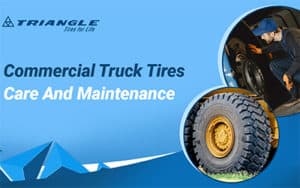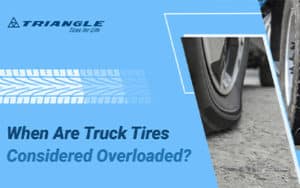Tires are a vital part of your car and your driving experience. It serves as your vehicle’s stabilizer and direct contact on the road. However, tires should be inflated to the recommended tire pressure for your vehicle to function properly.
The tire pressure is responsible for holding your car’s weight. So if one of your tires isn’t properly inflated, it affects your entire driving experience. If you’ve experienced a flat tire, that’s what it does to your car and drive.
For those reasons relating to your safety while driving, it’s essential to check your tire pressure. Here are the reasons why it’s important to do it regularly.
Preventing over and under-inflation
If you don’t have proper car tire pressure, then that means your tires are either over-inflated or under-inflated. All tires have a specified tire pressure measured through pound per square inch (PSI) based on a vehicle’s total weight, size, towing capacity, and recommended tire size.
Your vehicle’s manufacturer and tire producer’s recommended PSI is intended to enhance your ride comfort and safety, load capacity, tire traction and wear, and overall fuel economy. That’s why over or under-inflated tires can cause major problems that jeopardize your safety on the road. Tires that are not inflated to the right tire pressure costs more for the driver because of extra maintenance and fuel expense.
Over-inflation will reduce the cushioning capacity of your tires. Without enough cushion, your tires are more susceptible to penetrations and abrasions. It also reduces its impact absorption and its contact with the road.
Over-inflated tires negatively affect driving comfort, vehicle handling behavior, directional stability, and tire wear. In addition, an overinflated tire will excessively increase inner wear and cause uneven tire tread wear.
On the other hand, under-inflation will cause excessive flexing of your tires’ sidewalls. That will lead to overheating and, in severe cases, break up your tire’s casing and tread separation. This is why under-inflated tires are the major cause of accidents due to blowouts.
Under-inflated tires negatively impact steering response, fuel economy, tire durability, and driving safety. In addition, under-inflating them can cause a tire to dislodge from its rim while turning a corner, which makes it a hazard.
Maintaining good car performance and passenger safety
Under-inflating and over-inflating your tires can affect their performance while driving. It can damage your tires to the point where it compromises the safety of your passengers, i.e., cause of blowouts, erratic directional driving, and difficult maneuvering. Therefore, it’s only right that you check your car tire pressure regularly to keep your passengers safe.
Proper inflation also has an effect on your fuel economy. Even slightly under-inflated tires can increase your vehicle’s fuel consumption by more than 5%. That adds about ₱75 to your monthly fuel expenses if you spend an average of ₱1,500.
Another safety hazard incorrect car tire pressure causes are decreasing your car’s stopping distance by hazardous levels. It can happen when your tires are under-inflated, and the stopping distance decreases even more for heavier vehicles and the dangers are compounded when the weather is windy or rainy.
Incorrect tire pressure can also shorten your tire’s lifespan. Under and over-inflation tires can lead to excessive and premature wear and tear of your tires. Premature wear and tear on your tires can lead to more expenses because instead of getting your money’s worth with your current tires, you’ll end up replacing them sooner than expected.
How to check your car tire pressure

You can use a tire pressure gauge to check your tire pressure manually. If you don’t have one, you can purchase one from auto parts stores, department stores, and gas stations.
Besides a gauge, you can also refer to your car’s tire pressure monitoring system (TPMS). A TPMS is installed on new cars and has two main types: direct and indirect. These monitoring systems issue a warning after your tire pressure drops 25% below what is recommended.
You should check your tire pressure at least once a week or every time you gas up. Keep in mind that even the slightest reduction in tire pressure can under-inflate your tires and damage them when you drive.
Wrap up
Check your tire pressure regularly because your life depends on it. Stay safe by regularly conducting car maintenance duties.


